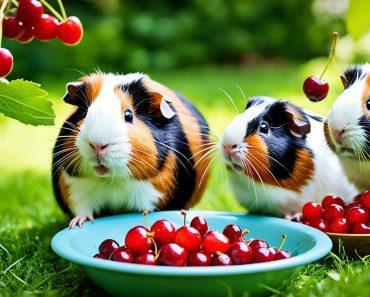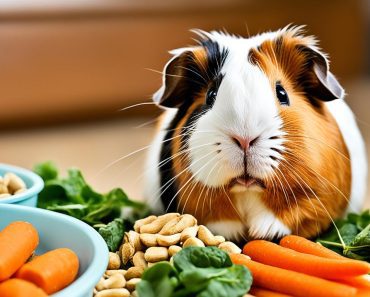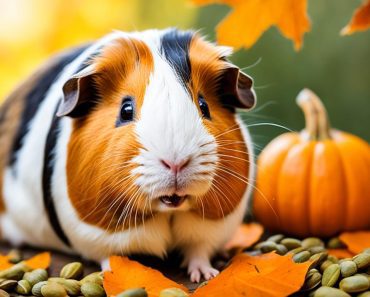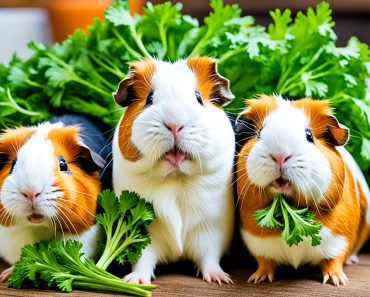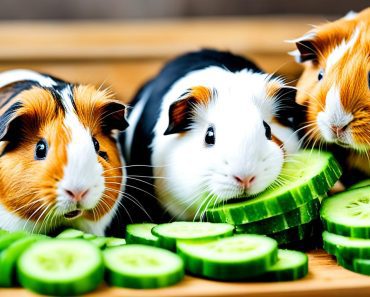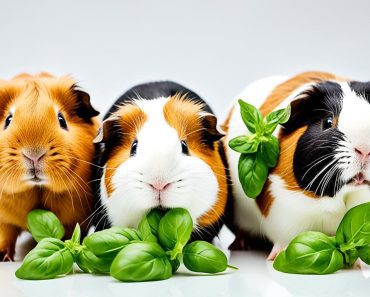Hello, fellow guinea pig lovers! Today, I want to talk about a question that often comes up in discussions about guinea pig diets: Can guinea pigs eat cilantro coriander?
I’m sure many of you have wondered whether cilantro, also known as coriander, is a safe herb for your furry friends to enjoy. Well, I’m here to tell you that yes, guinea pigs can indeed eat cilantro!
Cilantro should be a part of their diet alongside other leafy greens like lettuce and kale. It’s not only safe but also provides several nutritional benefits for your adorable little companions.
Cilantro is a good source of vitamins and nutrients that guinea pigs need to stay healthy. It contains Vitamin A, which supports their organs and promotes good vision. It also contains Vitamin C, which is important for their immune system. Additionally, cilantro is a source of Vitamin K, fiber, and antioxidants.
However, it’s crucial to keep in mind that guinea pigs should be given cilantro in moderation. Overfeeding cilantro can lead to bladder stones, and some guinea pigs may be allergic to it. So always observe your furry friend’s reaction and consult with a veterinarian if you have any concerns.
Can Guinea Pigs Eat Cilantro Coriander? Yes, they can.
- Guinea pigs can safely eat cilantro as part of their diet.
- Cilantro is a good source of vitamins A, C, and K for guinea pigs.
- Feed cilantro in moderation to avoid potential risks like bladder stones.
- Monitor your guinea pig for any signs of allergies or digestive issues when introducing cilantro.
- Consult with a veterinarian if you have any concerns about your guinea pig’s diet.
Nutritional Benefits of Cilantro for Guinea Pigs
Cilantro, also known as coriander, is not only a tasty herb for humans but also provides numerous nutritional benefits for guinea pigs. Incorporating cilantro into their diet can contribute to their overall health and wellbeing.
Vitamins in Cilantro
Cilantro is rich in essential vitamins that are vital for guinea pig nutrition. It contains significant amounts of:
- Vitamin A: Supports the organs and promotes good vision in guinea pigs.
- Vitamin C: Important for their immune system and overall health.
- Vitamin K: Essential for blood clotting and bone health.
Minerals in Cilantro
In addition to vitamins, cilantro also provides essential minerals that are necessary for guinea pig health. These include:
- Iron: Important for the production of red blood cells and oxygen transport.
- Calcium: Supports strong bones and teeth.
- Phosphorus: Essential for energy metabolism and cell function.
Other Nutritional Components
Cilantro is packed with fiber, which promotes a healthy digestive system in guinea pigs. It also contains antioxidants that help reduce the risk of chronic diseases and support overall wellbeing.
How to Safely Feed Cilantro to Guinea Pigs
When it comes to feeding cilantro to your guinea pigs, there are a few important guidelines to follow to ensure their safety and well-being. First and foremost, it’s crucial to make sure that the cilantro you offer is fresh and thoroughly washed to remove any potential pesticides or contaminants. This step is essential in safeguarding their health and promoting a positive eating experience.
You can incorporate cilantro into your guinea pigs’ diet on a daily basis, but moderation is key. The recommended amount of cilantro for each serving is 10 to 20 stems. This allows your furry friends to enjoy the flavorful herb without overwhelming their digestive system.
Mixing cilantro with other fruits and vegetables is an excellent way to provide a balanced diet for your guinea pigs. By incorporating a variety of nutritious foods, you can ensure that they receive all the essential vitamins, minerals, and nutrients necessary for their well-being.
To introduce cilantro to your guinea pigs, start by offering small amounts and carefully observing their reaction. Just like humans, guinea pigs may have individual preferences and sensitivities. If you notice any signs of distress or digestive issues, such as diarrhea or appetite loss, it’s crucial to reduce or stop giving them cilantro immediately.
Remember, the health and happiness of your guinea pigs should always be a top priority. By following these simple guidelines, you can safely incorporate cilantro into their diet and provide them with a delightful and nutritious treat.
My Cilantro-licious Recipe
If you’re looking for a fun and creative way to incorporate cilantro into your guinea pigs’ diet, why not try this simple recipe:
- Ingredients:
- 1 cup of fresh, washed cilantro
- 1/2 cup of sliced carrots
- 1/4 cup of diced red bell peppers
- Instructions:
- Chop the cilantro into small pieces.
- Mix the cilantro, sliced carrots, and diced red bell peppers in a bowl.
- Offer a small portion of this cilantro-licious mixture to your guinea pigs and observe their enjoyment!
This recipe provides a delightful combination of flavors and nutrients that your guinea pigs are sure to love. Remember to always monitor their reaction and adjust the proportions or ingredients based on their individual preferences and dietary needs.
Potential Risks and Allergies to Cilantro for Guinea Pigs
While cilantro is generally safe for guinea pigs, it’s important to be aware of potential risks and allergies associated with feeding this herb. Overfeeding cilantro can lead to the formation of bladder stones in guinea pigs, as it contains a high amount of calcium. To prevent this, it’s crucial to monitor your guinea pig’s urine for any signs of calcium deposits.
Additionally, some guinea pigs may have allergies to cilantro. If your guinea pig is allergic to cilantro, they may exhibit symptoms such as rashes and itching. Allergic reactions can vary in severity, so it’s essential to pay close attention to your guinea pig’s behavior and any changes in their health after consuming cilantro.
If your guinea pig shows signs of digestive issues or diarrhea after consuming cilantro, it’s important to stop feeding it immediately. Diarrhea can lead to dehydration, which can be dangerous for guinea pigs. Always prioritize your guinea pig’s well-being and consult with a veterinarian if you suspect any adverse reactions to cilantro.
| Potential Risks and Allergies to Cilantro for Guinea Pigs | |
|---|---|
| Risk | Prevention/Mitigation |
| Bladder stone formation | Monitor urine for signs of calcium deposits. Feed cilantro in moderation. |
| Allergic reactions | Observe for symptoms like rashes and itching. Cease cilantro feeding if allergy is suspected. |
| Digestive issues and diarrhea | Stop feeding cilantro immediately if these symptoms occur. Seek veterinary advice if necessary. |
Remember, every guinea pig is unique, and their tolerance and reaction to cilantro may vary. It’s crucial to pay attention to their individual responses and adjust their diet accordingly. By being mindful of the potential risks and allergies associated with cilantro, you can ensure the well-being and health of your guinea pig.
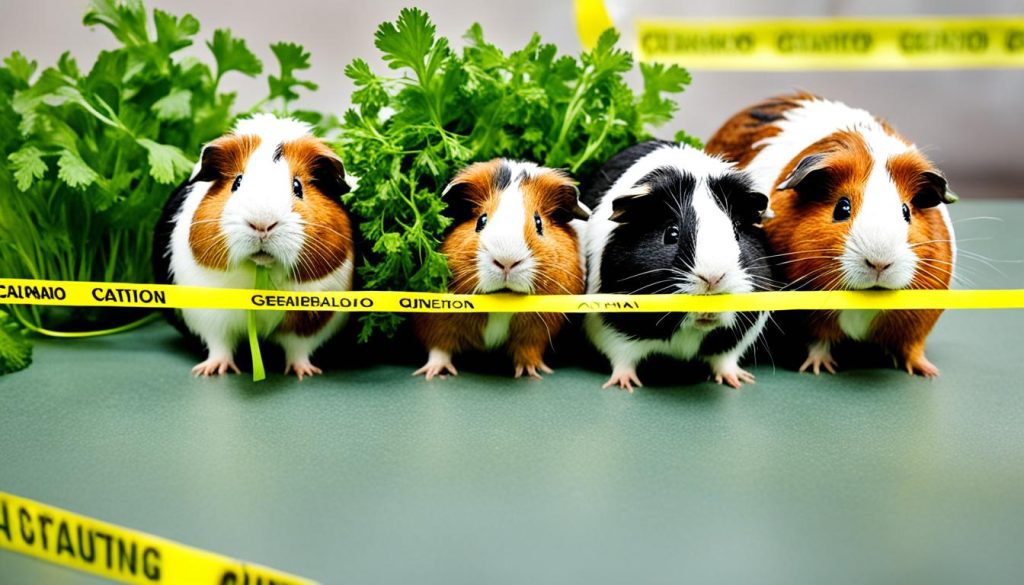
Conclusion
Guinea pigs can safely enjoy cilantro as part of their balanced diet. Cilantro provides numerous nutritional benefits, including essential vitamins and minerals that contribute to their overall health and well-being. With its rich content of Vitamin A, Vitamin C, and Vitamin K, cilantro supports proper organ function, good vision, and a strong immune system for guinea pigs.
However, it is crucial to feed cilantro to guinea pigs in moderation and monitor their response closely. Some guinea pigs may have allergies or sensitivities to cilantro, so it’s important to observe for any signs of allergies or digestive issues. If such reactions occur, it is best to discontinue the use of cilantro in their diet and seek alternative safe treats.
When introducing cilantro to your guinea pig’s diet, it’s recommended to start with small amounts and gradually increase if their system tolerates it well. Proper washing of cilantro is also essential to remove any potential pesticides, ensuring the safety of your furry friend.
Cilantro can be a healthy and flavorful addition to your guinea pig’s mealtime. It contributes to their nutritional needs and provides a delightful treat. Just remember to offer cilantro in moderate portions, watch for any adverse reactions, and consult a veterinarian if you have any concerns. Your guinea pig will surely appreciate the tasty and nutritious benefits of cilantro in their diet!

